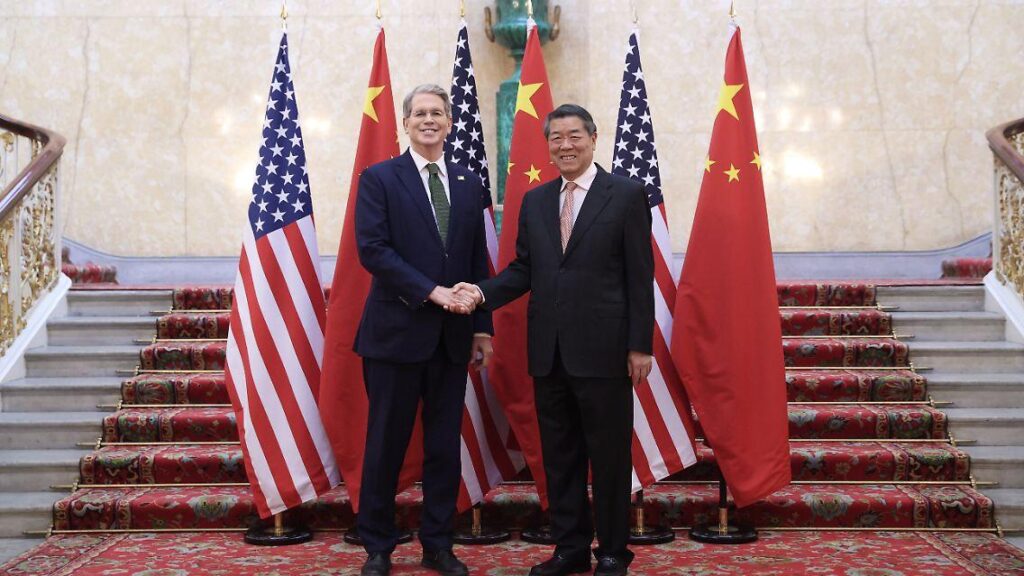China Forges Robust Defense Alliance with Iran and Russia Amid Global Power Shifts
In a clear indication of evolving geopolitical alliances, China recently hosted a pivotal defense summit with Iran and Russia, underscoring an intensifying trilateral partnership. This high-level meeting comes at a time when global power balances are rapidly changing, with these nations seeking to strengthen their military collaboration in response to mounting Western sanctions and regional tensions. The dialogue focused on enhancing joint defense capabilities, sharing advanced military technologies, and coordinating intelligence efforts to address shared security challenges.
The key areas of cooperation emerging from this summit include:
- Expanded Military Drills: Commitments were made to increase the frequency and complexity of joint exercises across diverse environments, including maritime zones and mountainous terrains.
- Technological Exchange: Agreements were reached on collaborative development and transfer of cutting-edge drone systems and missile technologies.
- Intelligence Sharing Enhancements: A framework was established for more systematic exchange of information related to regional threats such as terrorism, cyberattacks, and foreign interference.
- Defense Industry Collaboration: Discussions included potential co-investment in defense manufacturing sectors aimed at reducing reliance on Western suppliers.
This trilateral alliance serves as a strategic counterweight to NATO’s expanding influence—particularly in contested regions like the South China Sea and the Middle East—signaling an intent by Beijing, Tehran, and Moscow to assert greater autonomy over their security agendas. Experts warn that this growing synergy could significantly alter existing geopolitical equations by consolidating military strength among these powers.
Security Repercussions Stemming from the China-Iran-Russia Defense Partnership
The recent convergence between China, Iran, and Russia marks a transformative moment for regional security frameworks. Their enhanced cooperation is poised to amplify their collective ability to project power across critical hotspots worldwide. Key consequences include:
- Augmented Military Presence: By pooling resources for joint operations—including naval patrols near disputed waters—the trio can more effectively challenge rival forces’ dominance in strategic corridors such as the Persian Gulf or Eastern Mediterranean.
- Tensions Escalation Risks: Neighboring states may perceive this alliance as threatening enough to trigger arms buildups or new defensive pacts themselves; for instance, Gulf Cooperation Council countries might deepen ties with Western allies in response.
Beyond immediate military concerns lies broader economic realignment: increased collaboration could foster alternative trade networks that bypass traditional Western-dominated routes like those controlled by U.S.-aligned partners. This shift may encourage new spheres of influence where economic dependencies reinforce political loyalties within this bloc.
- Evolving Economic Partnerships: Joint infrastructure projects under initiatives similar to China’s Belt & Road Initiative (BRI) could expand into defense-related industries among these countries’ territories.
- A Strategic Counterbalance Against U.S.: This coalition represents an explicit effort to dilute American sway over global affairs by presenting unified diplomatic stances at international forums such as the United Nations Security Council (UNSC).
Strategic Responses Recommended for Global Powers Facing Emerging Military Coalitions
The formation of stronger ties between China, Iran, and Russia signals an urgent need for proactive measures from other international actors committed to maintaining balance within global governance structures. To effectively respond:
- Cultivate Stronger Multilateral Frameworks: Nations should reinforce alliances like NATO or form expanded coalitions akin to the Quad (comprising the U.S., Japan, India & Australia) focusing on collective deterrence strategies against rising authoritarian blocs.
- Pursue Vigorous Diplomatic Engagements: Diplomacy must be prioritized through sustained dialogue channels aimed at conflict prevention while promoting transparency around military activities within volatile regions affected by these partnerships.
li > - < b > Promote Inclusive Economic Networks: b > Encouraging trade agreements emphasizing democratic values can provide viable alternatives that reduce susceptibility toward coercive economic practices often linked with authoritarian regimes.
li > - < b > Invest Heavily In Advanced Defense Technologies: b > Allocating resources towards innovation ensures preparedness against sophisticated threats posed by adversarial coalitions leveraging emerging warfare domains such as cyberwarfare or hypersonic weaponry.
li >ul >
An ongoing assessment mechanism involving intelligence sharing among allied democracies will be crucial in anticipating shifts within this tripartite alliance’s strategy. Establishing dedicated forums focused on continuous evaluation can enhance coordinated policy responses globally.The table below outlines primary concerns alongside actionable steps recommended for policymakers worldwide:< /a> p >
Primary Concern< /th > Recommended Action< /th >
< /tr >
< /thead >Expansion Of Military Alliances< /td > Increase scope & scale of multinational training exercises< /td > Rising Geopolitical Instability< /td > Strengthen mediation platforms & conflict resolution protocols< /td > Economic Pressure Tactics By Authoritarian Blocs< /td > Bolster trade partnerships rooted in transparency & rule-based order< / td > tr > Final Thoughts on the Evolving Trilateral Defense Alliance
The recent summit convened by China alongside Iran and Russia marks a watershed moment reflecting deeper integration among non-Western powers amid shifting international alignments. As they intensify their defense cooperation amidst increasing friction with Western nations,this partnership has far-reaching implications beyond Asia alone. It portends potential recalibrations not only militarily but also diplomatically across multiple continents.
The trajectory set forth suggests continued monitoring will be essential; how Beijing’s leadership navigates its relations with Tehran’s ambitions alongside Moscow’s strategic interests will shape future global power configurations profoundly. Observers anticipate further developments that may redefine alliances well into coming years—making it imperative that policymakers remain vigilant yet adaptable amid this dynamic geopolitical environment.
